When it comes to solar panels, you want to be able to maximise the efficiency and performance of your solar system. With so many solar panel manufacturers and features to consider, choosing the right system can feel overwhelming. Here, we want to make it a lot easier for you. We have identified five key categories that are particularly important for Australian homeowners: efficiency, low degradation rate, technology, temperature coefficient, and all-in-one solution.
We have analysed 5 top brands—REC, Yingli Solar, LONGi, SunPower, and LAVO—to see which one excels in each category. This breakdown will help you prioritise what matters most and pick the perfect solar system for your home.
Solar panel efficiency
Solar panel efficiency refers to the percentage of sunlight that a solar panel can convert into usable electricity. This efficiency is influenced by various factors, including the type of photovoltaic cells used (monocrystalline, polycrystalline, or thin-film), the quality of materials, the design and technology of the panels, and environmental conditions such as temperature, angle of sunlight, and shading. Higher-efficiency panels can generate more electricity from the same amount of sunlight compared to lower-efficiency panels, making them more effective in space-constrained or low-light environments.
Winner: LONGi
LONGi is among the most established solar manufacturers globally. Reputation-wise, the company has garnered both good and bad reviews since its inception in 2000, but nevertheless, it’s one of the most trusted solar manufacturers today.
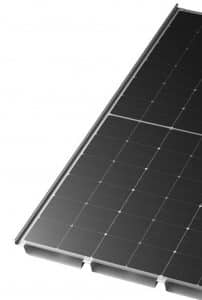
When it comes to efficiency, LONGi takes it all among the brands that we have pitted against it. Solar panel efficiency directly translates to how much electricity you get from sunlight. A highly efficient panel maximises power generation on your rooftop space. This means you can potentially generate enough electricity to cover needs with fewer panels, saving you space.
LONGi’s product range of solar panels—from the Hi-MO 4 Series to the Hi-MO 6 Series has efficiency ratings between 22% to 25%.
With LONGi’s new generation HPBC cell technology, the cells can exceed 25.% represented by the brand’s Hi-MO 6. Their latest product range is divided into four series, Explorer, Scientist, Guardian, and Artist.
To make it even better, it also features the best technologies, such as the Back Contact tech that lets panels make more electricity from the amount of sunlight. This technology also boosts its aesthetics, with no metal lines on the front for that sleek and clean look.
Lower Degradation Rate
Lower degradation rate refers to the slower decline in the performance and efficiency of a solar panel over time. This rate indicates how much the panel’s ability to convert sunlight into electricity diminishes each year. A lower degradation rate means that the panel maintains its efficiency and output more effectively throughout its lifespan, resulting in better long-term performance and higher overall energy production. Factors such as the quality of materials, manufacturing processes, and environmental conditions can influence the degradation rate.
Winner: REC solar panels
REC Solar has been one of the most renowned and well-established manufacturers of solar PV modules since 1996. They are known for their superior quality. One of its popular products on the market is the Alpha Pure Series with an efficiency rating between 19% to 22%.
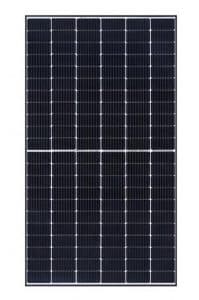
REC solar panels are equipped with several advanced technologies, such as Gapless cell, HJT tech, and AMI. Although these technologies are top-notch, we put REC under the best in low degradation rate. Solar panels naturally lose some power output over time. REC’s impressive degradation rate means your panels will maintain a higher efficiency level for longer, maximising electricity production throughout their lifespan. This means you get the most out of your solar investment for years to come.
The brand wins the lower degradation rate category based on its Alpha Pure Series which only loses 0.25% of its power every year following the initial year and still retains over 92% of its value after 25 years. It is one of the highly recommended brands that guarantee good ROI. This means that their panels will deliver more power compared to other solar panels on the market through the course of their 25-year lifetime.
Innovative Technology
Innovative solar technology is transforming the way we harness and utilise solar energy, focusing on enhancing efficiency, reducing costs, and expanding applications. Key advancements include perovskite solar cells, which offer high efficiency at lower production costs, and bifacial solar panels that capture sunlight on both sides, increasing energy output. Building-integrated photovoltaics (BIPV) seamlessly incorporate solar cells into architectural elements like windows and facades. Additionally, solar energy storage solutions, such as advanced lithium-ion batteries and flow batteries, enable better management of energy supply and demand. These innovations are paving the way for a more sustainable and energy-efficient future.
Winner: SunPower
SunPower, founded in 1985 has gone through significant changes that made it one of the most reputable manufacturers today. Since 2020, following an investment by Tinajin Zhinghuan Semiconductor Co. (TZS), Maxeon Solar is now the company behind the solar panel manufacturer, although the branding remains to be SunPower. Also over the past 25 years, SunPower has supplied solar panels for several NASA projects.
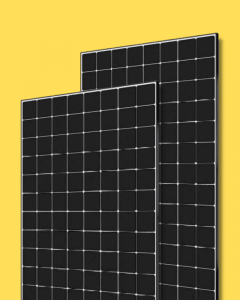
SunPower’s solar panels have an impressive efficiency ratings of up to 22.6%. The brand takes the crown for technology, and that’s a future-proof choice.
Solar panel technology is constantly evolving, offering efficiency gains and performance improvements. SunPower is at the forefront of this innovation.
The Maxeon Series featured interdigitated back content (IBC) solar cells. It uses back-contact energy conversion that allows it to absorb more sunlight due to the lack of grid lines on the cells. The cells are placed on a tin-copper metal system that provides increased corrosion resistance.
Temperature Coefficient
The temperature coefficient of a solar panel indicates how its efficiency and power output change with temperature variations. Typically expressed as a percentage per degree Celsius, this coefficient shows the reduction in performance as the panel’s temperature rises above standard test conditions (25°C). A lower temperature coefficient is desirable, as it means the panel’s efficiency is less affected by high temperatures, leading to more stable and reliable energy production in hot climates. Understanding and optimising the temperature coefficient is crucial for improving the overall performance and longevity of solar panels.
Winner: Yingli Solar
Yingli Solar has been on the market since 1998, which ensures the brand has over 20 years of experience under its belt. Although the brand has gone through financial troubles, it remains one of the largest solar panel manufacturers today.
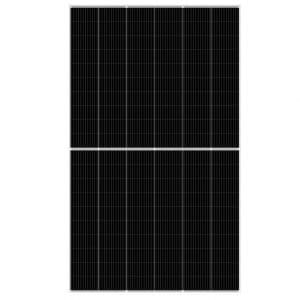
Australia experiences hotter summers, therefore, the temperature coefficient is more important. Lower temp-co panels mean less power loss on really hot days, maximising your solar energy production throughout the year. This is why Yingli Solar is our top choice if you’re looking for solar panels with a good temperature coefficient.
Yingli Solar is a strong contender in this category because its panels frequently demonstrate temp-co around -0.4%. This means power output is minimally affected by heat. Its temp-co falls within the good range for most solar panels as well, ranging between -0,3% to -0.5%.
All-In-One Solution
An all-in-one solar solution integrates all necessary components for a solar energy system into a single, cohesive package. This typically includes solar panels, inverters, batteries for energy storage, and a monitoring system. Designed for ease of installation and streamlined operation, all-in-one solutions simplify the process of adopting solar energy by providing a turnkey approach that ensures compatibility and optimal performance. These solutions are ideal for residential and commercial applications, offering a convenient and efficient way to harness solar power while minimising the complexities associated with traditional, piecemeal solar installations.
Winner: LAVO
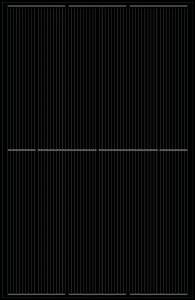
Some homeowners and business owners don’t want to think of other solar components when building their own systems. This is why under this category, LAVO Life is a worthy contender. LAVO Life is a total package: it comes with Tier 1 solar panels, a battery, an inverter, an EV charger, and a mobile app. All of these work together to maximise solar power.
What makes it even better is that is proudly designed by Aussies for the Aussie lifestyle and environment. It’s built for the harshest conditions and the battery and inverter are tangle-free due to the lack of nooks and fewer cables.
With a clearer understanding of these categories and how different brands perform, you’ll be more confident in choosing the ideal solar system for your home.













































